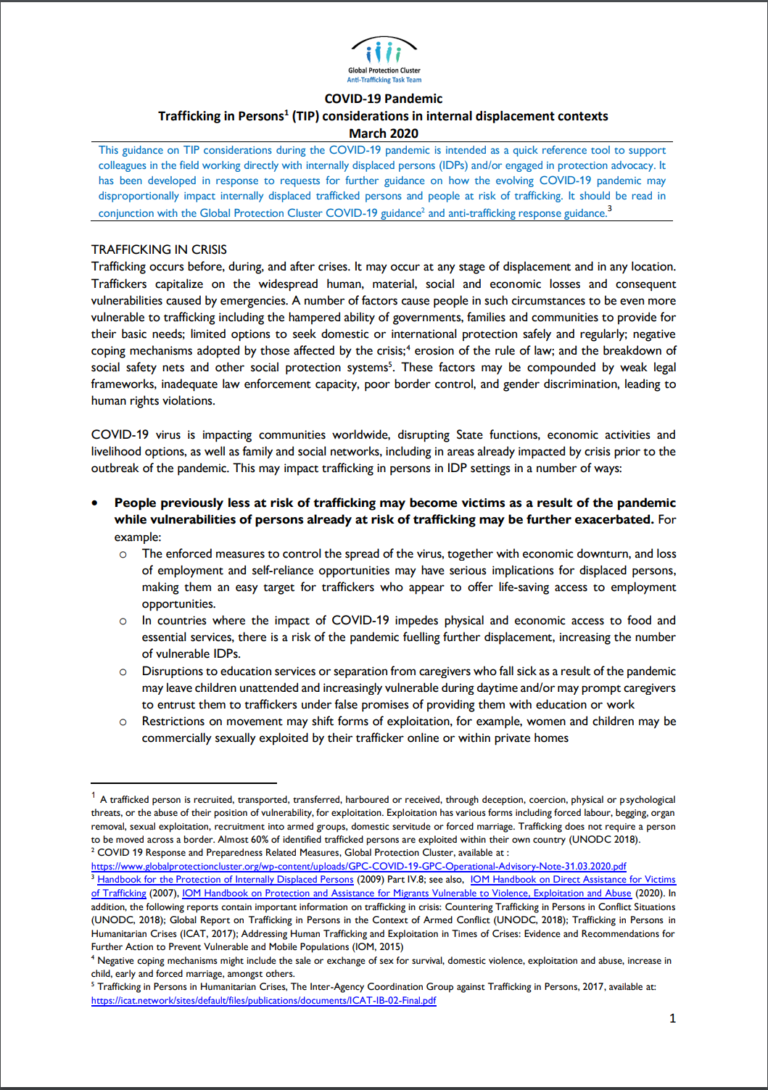Trafficking occurs before, during, and after crises. It may occur at any stage of displacement and in any location. Traffickers capitalize on the widespread human, material, social and economic losses and consequent vulnerabilities caused by emergencies. A number of factors cause people in such circumstances to be even more vulnerable to trafficking including the hampered ability of governments, families and communities to provide for their basic needs; limited options to seek domestic or international protection safely and regularly; negative coping mechanisms adopted by those affected by the crisis; erosion of the rule of law; and the breakdown of social safety nets and other social protection systems. These factors may be compounded by weak legal frameworks, inadequate law enforcement capacity, poor border control, and gender discrimination, leading to
human rights violations.

